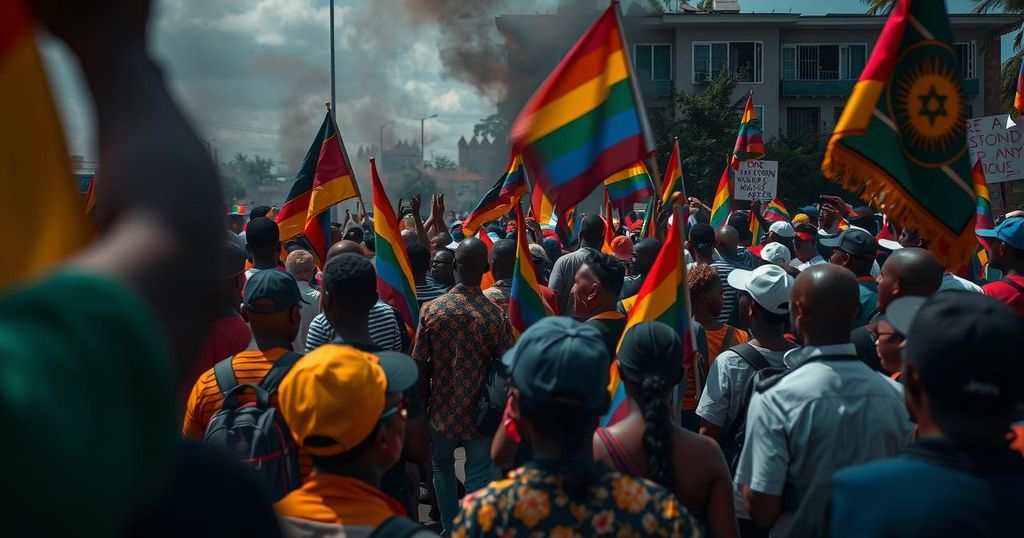Escalating Protests in Mozambique Following Controversial Election Results

In Mozambique, protests against the disputed election results have resulted in violence, claiming at least 11 lives, including that of Silvio Jeremias. The ruling Frelimo party’s candidate won 70.7% of the votes amidst allegations of fraud and electoral misconduct. The political discontent fueled by a young population has led to intensified calls for justice and reform as opposition party Podemos challenges the results legally.
On the evening of October 25, chaos erupted in the streets of Maputo, Mozambique, as protests against controversial election results turned deadly. Silvio Jeremias, a petrol station worker and father, was fatally shot amidst the unrest, marking him as one of at least eleven individuals killed by security forces during demonstrations that erupted following the elections. The official results announced by the ruling Frelimo party indicated that their candidate, Daniel Chapo, secured a staggering 70.7% of the votes, solidifying Frelimo’s long-standing dominance in Mozambican politics since the country’s independence in 1975. However, these results have been marred by serious allegations of electoral fraud, including claims of voter registration irregularities and ballot tampering. Human Rights Watch reported that over fifty protesters sustained serious injuries from gunfire during the demonstrations, leading to heightened tensions between police and the public. The police asserted that they only discharged live ammunition into the air; meanwhile, a spokesperson for the police cited an incident where a woman died and multiple others were injured due to “stray bullets” amid attempts to subdue opposition supporters. The political climate has intensified, especially among the country’s youthful population, which has increasingly turned against Frelimo’s authoritarian grip on the nation. The main opposition, the Podemos party led by Venâncio Mondlane, claimed victory with 53% of the vote, countering the official results by presenting substantial evidence suggesting widespread electoral corruption. The situation escalated in the days leading up to the election, when prominent opponents of the Frelimo regime faced deadly attacks, with civil society groups expressing serious concerns about the safety of those opposing the government. The tragic death of Jeremias has spurred many to demand accountability and transformational political change in Mozambique, amplifying the voices of those who feel stifled under current governance. The ongoing protests signify not just anger over the election outcomes, but also a deeper yearning for justice and democracy. As mourners paid their respects to Jeremias, their grief transformed into a rallying cry for political reform, with demonstrators calling out for accountability and change, holding signs that symbolized their hopes for a free electoral process.
Mozambique, a nation grappling with extensive poverty and political discontent, has been dominated by the Frelimo party since the country gained independence in 1975. The recent elections have ignited tensions owing to allegations of electoral misconduct, such as the registration of fictitious voters and ballot box manipulations. The escalation of violence against opposition members and civic activists illustrates the precarious political landscape and the dangers they face in voicing dissent. The protests following the election outcomes highlight both the immediate response to the perceived injustices of the electoral process and a broader demand for democratic reforms.
The violence unfolding in Mozambique following the recent electoral results highlights a critical inflection point in the nation’s political history. The protest movements reflect widespread discontent with the Frelimo party’s prolonged rule and allegations of election fraud, raising questions about the legitimacy of the electoral process. The tragic loss of life, including that of Silvio Jeremias, underscores the urgent need for accountability and reform in a nation where many citizens yearn for justice and genuine democratic representation.
Original Source: www.theguardian.com







